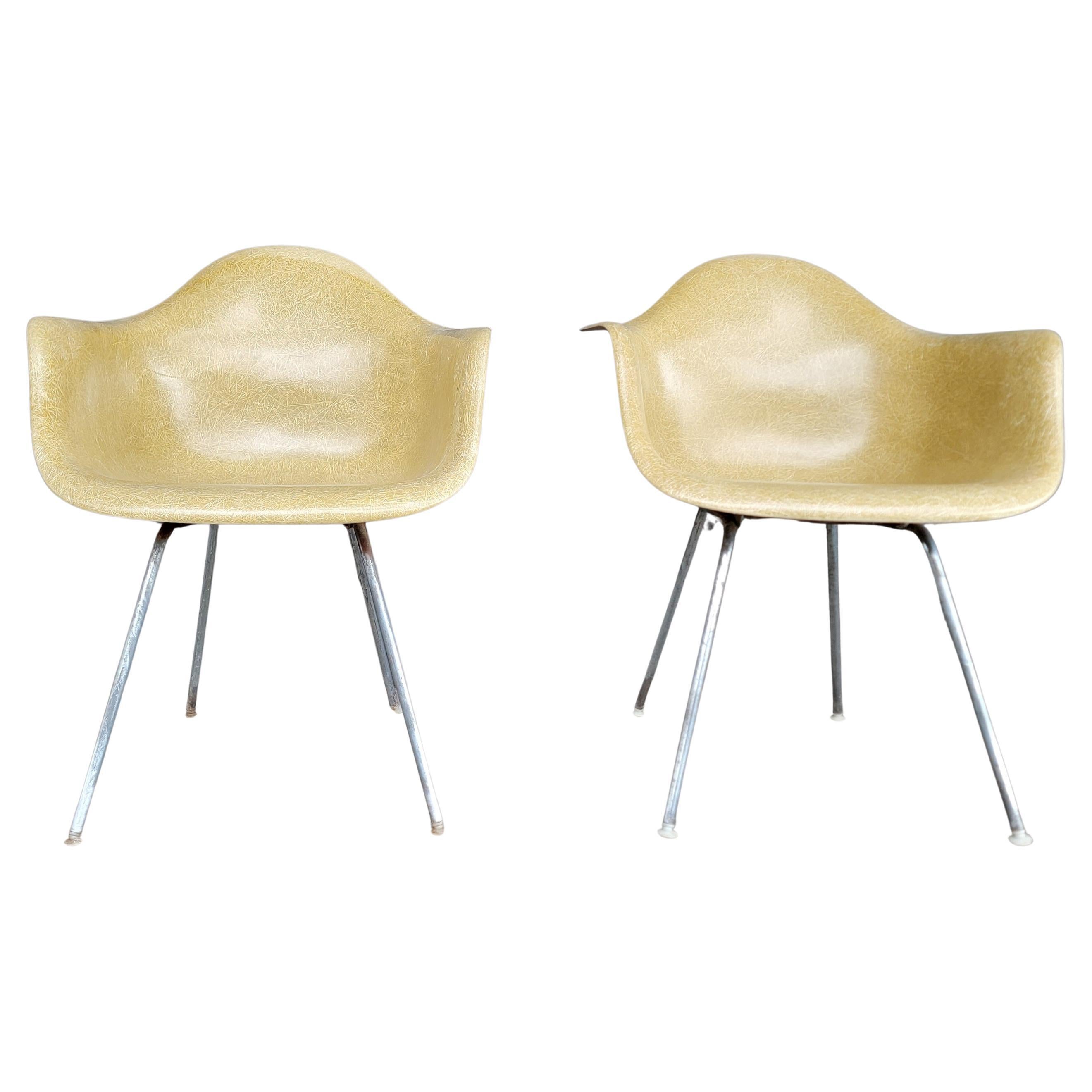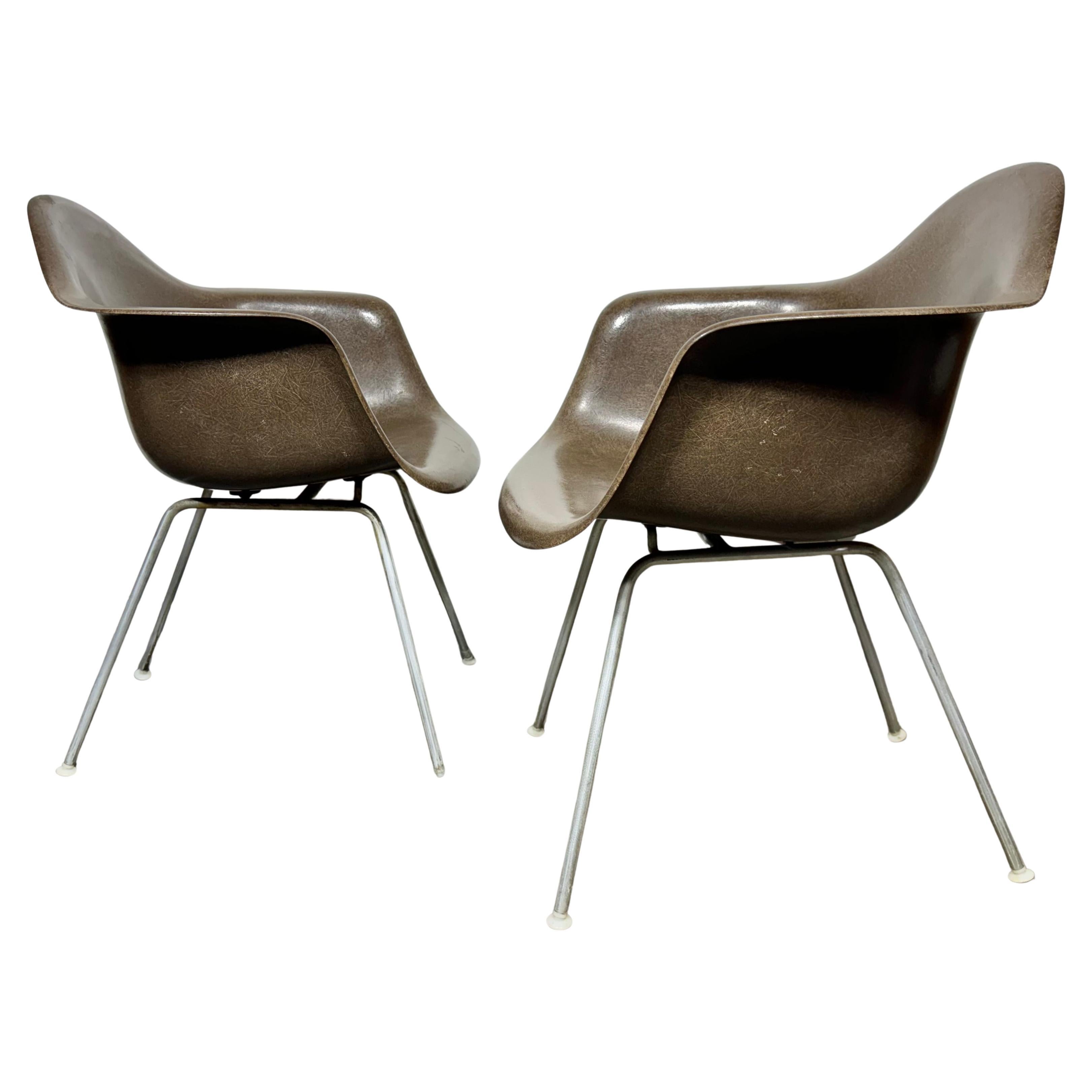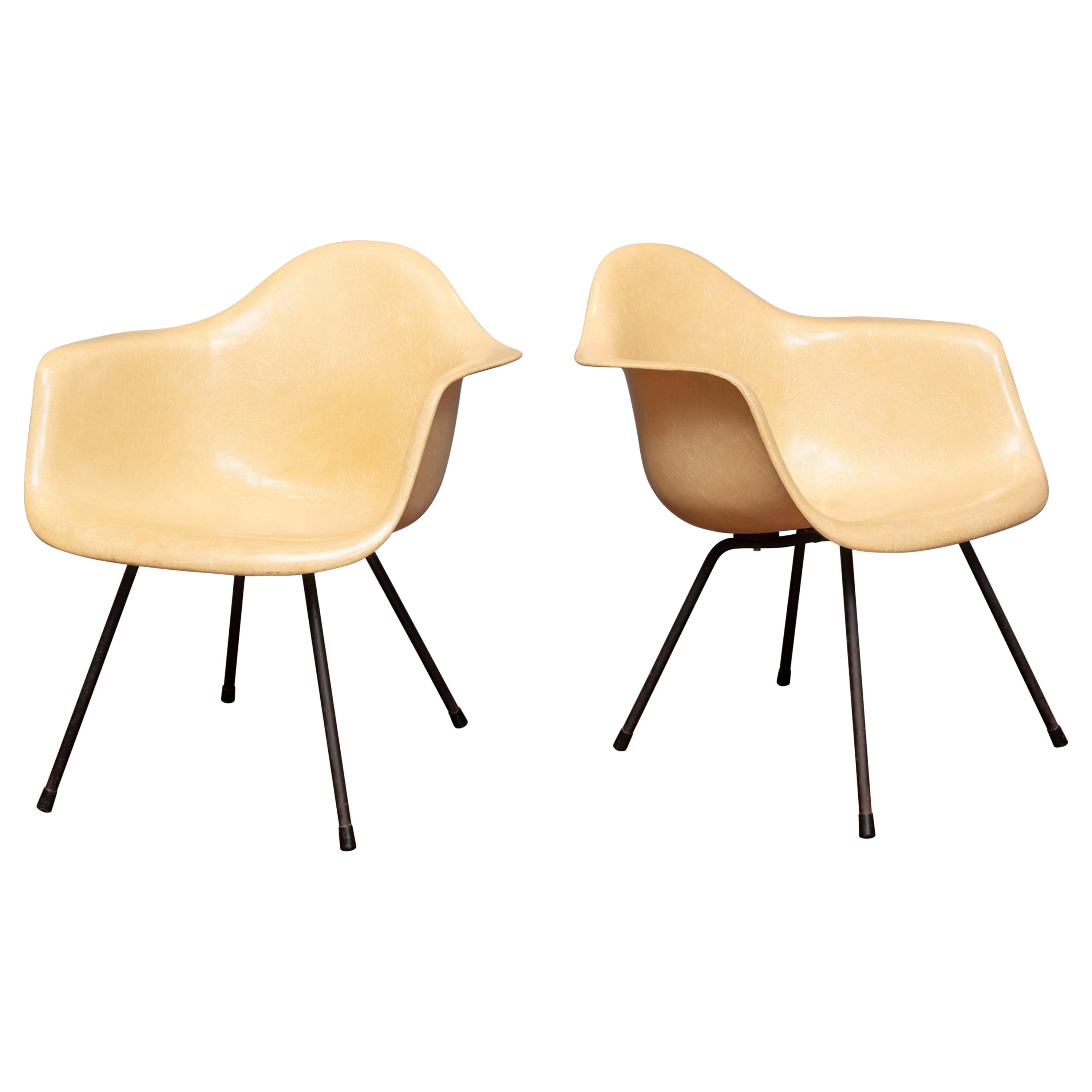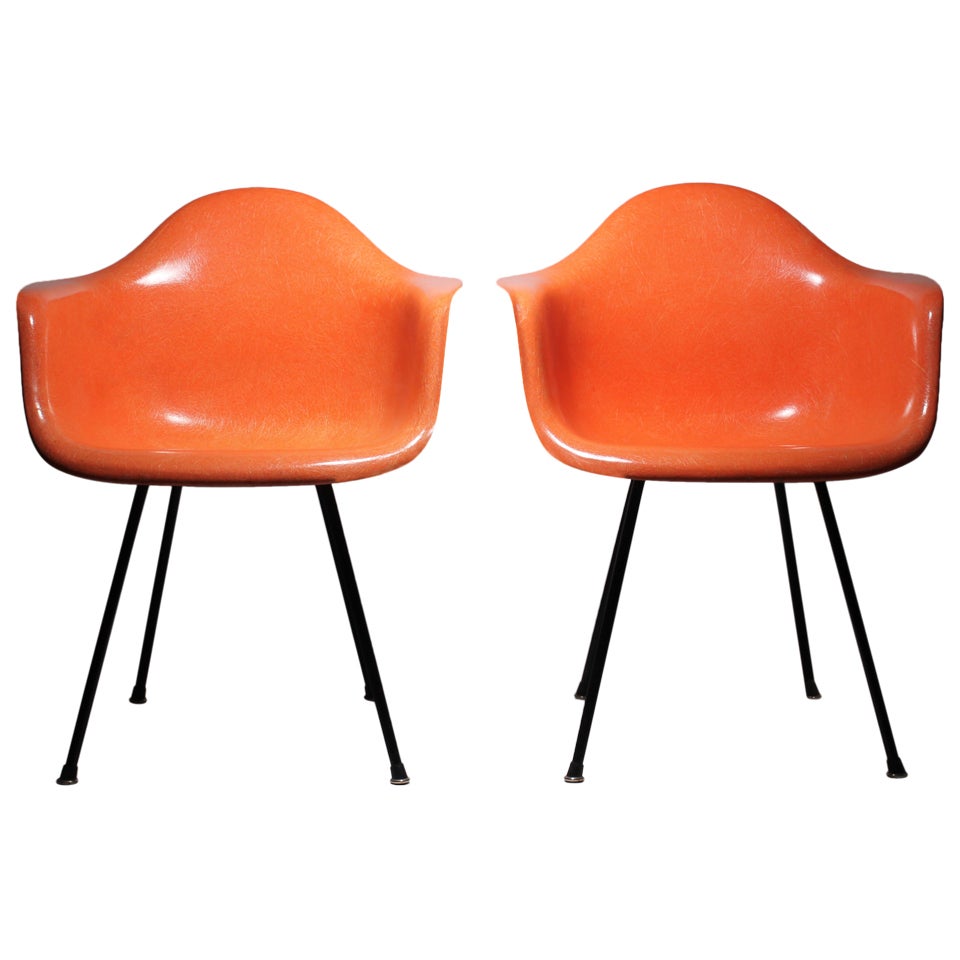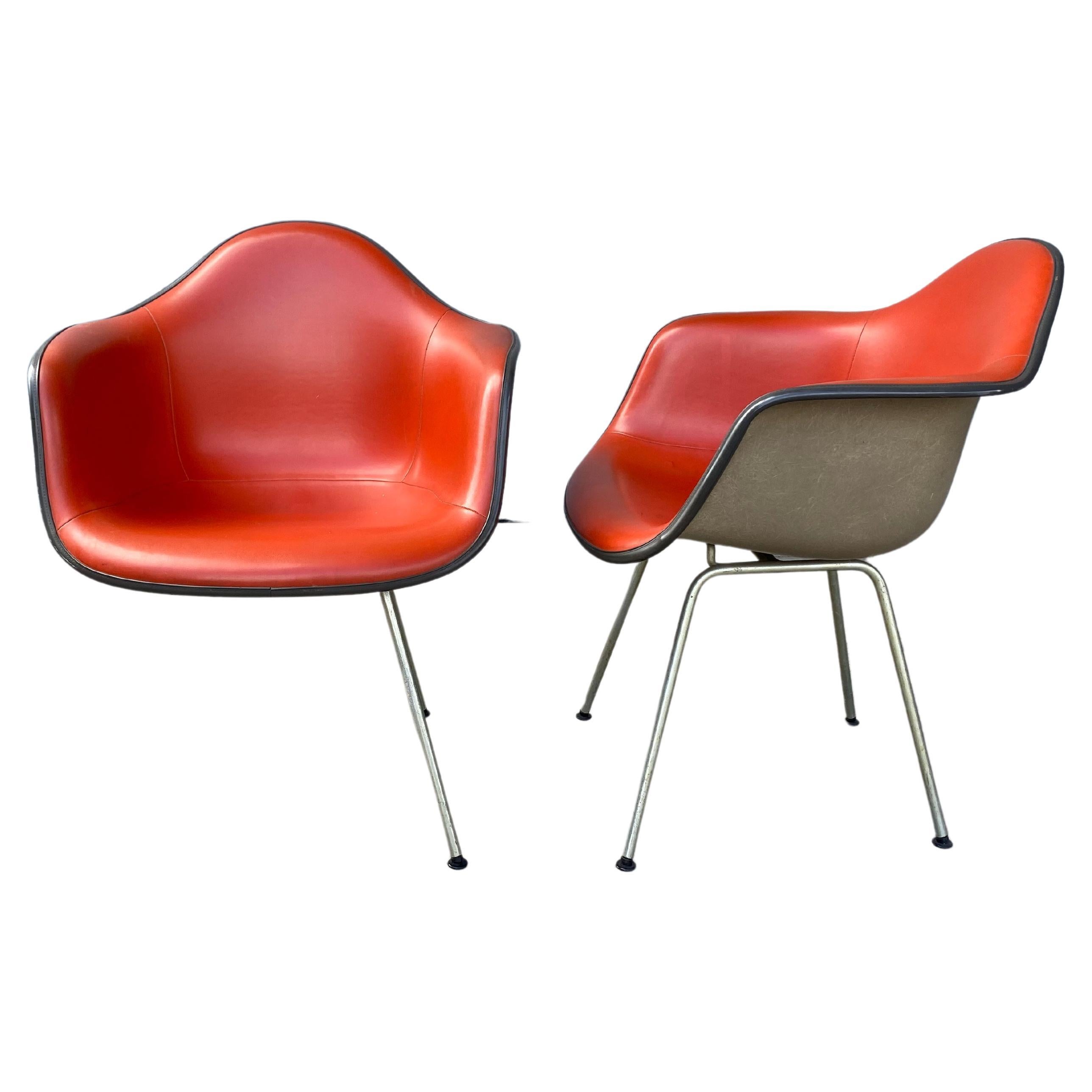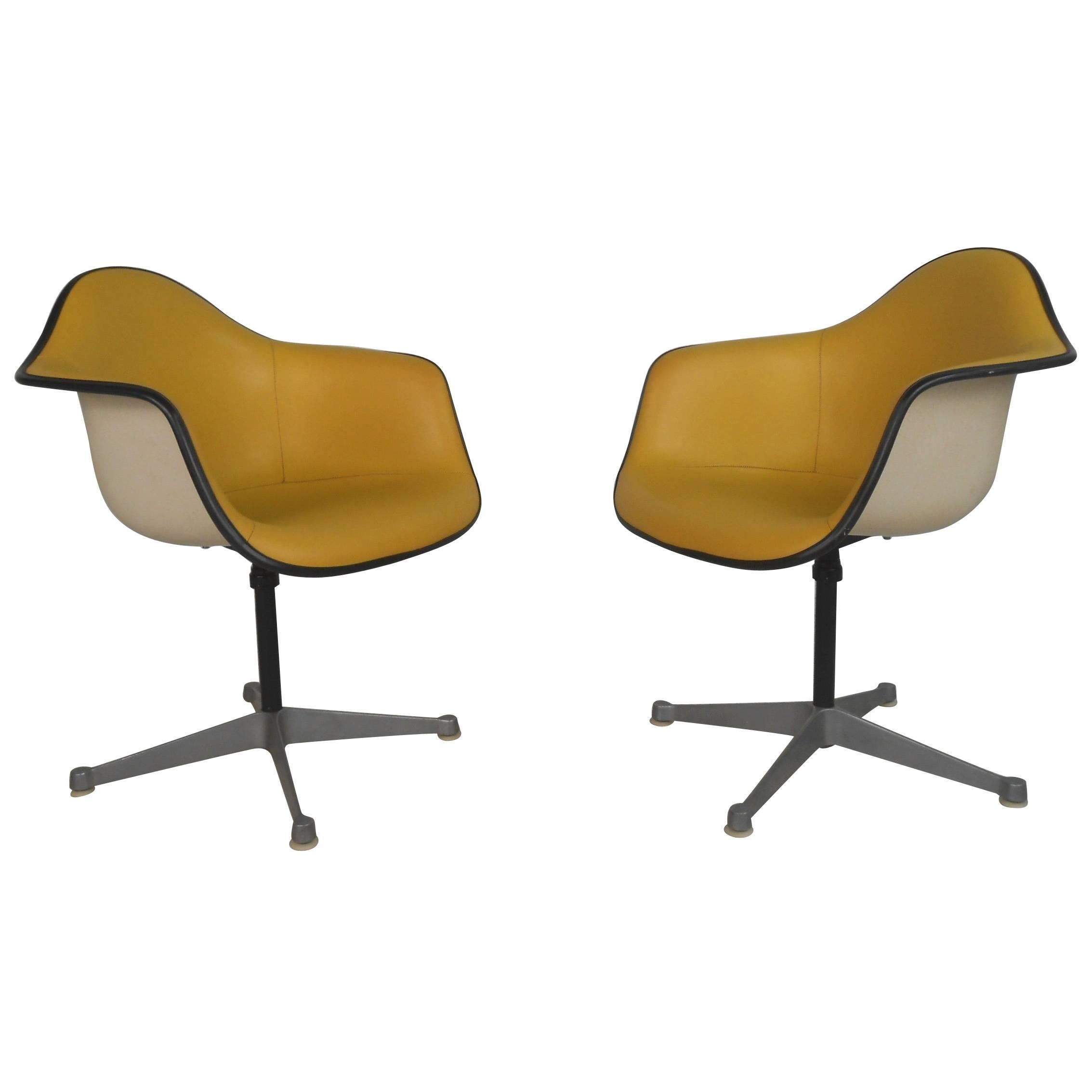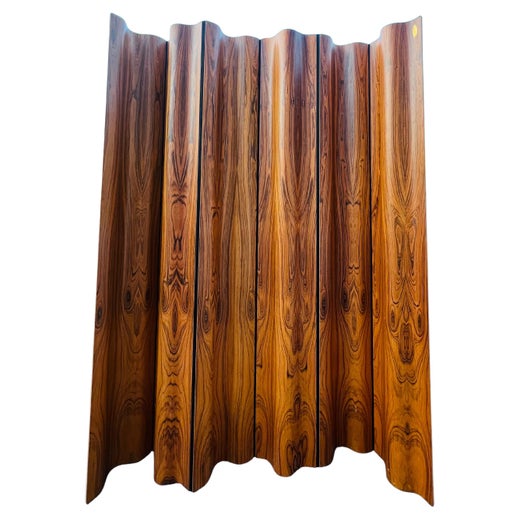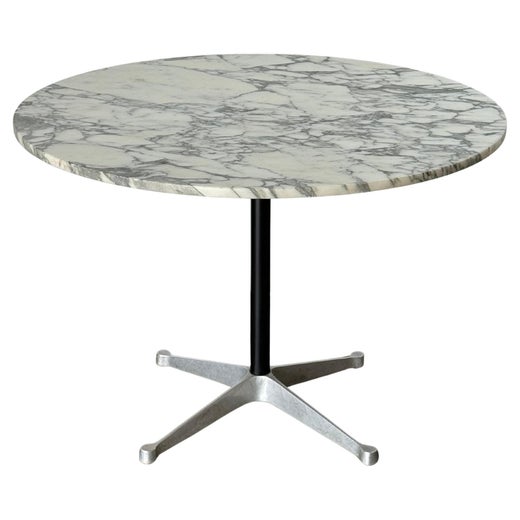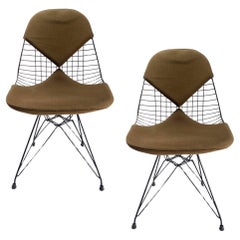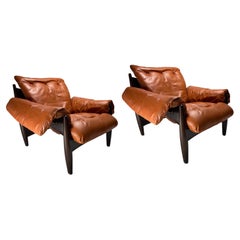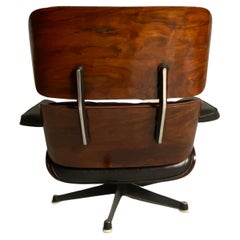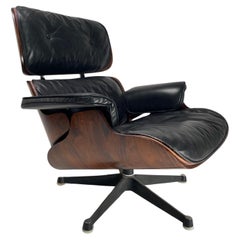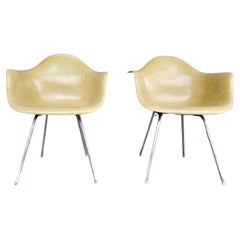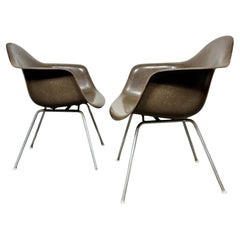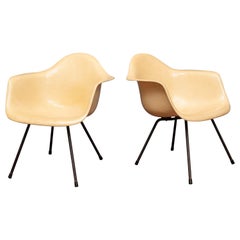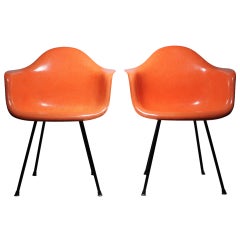Herman Miller, 2 Shell Fiberglass RAR Rockers by Eames (Old Edition)
About the Item
- Creator:Charles Eames (Designer),Herman Miller (Retailer)
- Dimensions:Height: 28.75 in (73 cm)Width: 25.6 in (65 cm)Depth: 27.56 in (70 cm)
- Sold As:Set of 2
- Style:Mid-Century Modern (Of the Period)
- Materials and Techniques:
- Place of Origin:
- Period:
- Date of Manufacture:1960s
- Condition:Repaired: The chairs have been repaired under the base by a previous owner, they are now solid and stable. Wear consistent with age and use. Minor fading.
- Seller Location:Argelato, IT
- Reference Number:1stDibs: LU7342241760222
Charles Eames
The legacy of Charles Eames looms large in design. In partnership with his wife, Ray, Charles was at the forefront of pioneering innovation in the use of molded plywood for furniture making. The Eameses’ cheerful and inviting work has endured among the most important advancements in the history of 20th-century design.
Together, visionary mid-century modern duo Charles and Ray Eames introduced a wide range of renowned furniture to the postwar market, including iconic designs such as the Eames lounge chair and ottoman, the wildly colorful birch plywood-and-plastic-laminate Eames storage unit, the Eames compact sofa and more. The designers were trailblazers in molded plywood furniture and brought lively organic form to metal and plastic.
Charles Eames studied architecture at Washington University in St. Louis. He traveled to Mexico and Europe, and experienced firsthand the work of designer-architects Le Corbusier and Ludwig Mies van der Rohe. In 1930, upon returning to Missouri, Eames opened an architecture practice with Charles M. Gray but later moved to Michigan in 1938. He received a fellowship at Cranbrook Academy of Art, which would become a breeding ground for the stars of mid-century design. Eames continued his architecture studies at Cranbrook and also taught in the design department.
In 1940, Eames met his future wife, artist and designer Beatrice Alexandra "Ray" Kaiser, who was studying at Cranbrook under Abstract Expressionist painter Hans Hofmann. Charles teamed up with another Cranbrook instructor, Finnish-American designer Eero Saarinen, to explore the possibilities of plywood for use in furniture design.
With support from Ray, Charles and Eero created chairs and case pieces and submitted them to the “Organic Design in Home Furnishings” competition at the Museum of Modern Art in New York City — among them was the groundbreaking organic Side chair made of molded plywood with maple legs. It was upholstered by Heywood-Wakefield. This exhibition is considered critical by many to the popularization of what is known as mid-century modernism. Eames and Saarinen won first place for their submissions to the competition.
Charles and Ray were married in 1941 and soon after moved to Los Angeles, California, and lived in an apartment building designed by architect Richard Neutra. Charles worked on set design at MGM, and at night, in a humble workshop they established in the guest bedroom, he and Ray experimented with molded plywood on a homemade device they called the “Kazaam!” machine. In 1942, the couple won a U.S. Navy contract to create molded plywood leg splints that would be used to support wartime medical efforts. Soon, the Evans Product Company was making the splints and the Eameses opened the famed Eames Office and studio.
The Eameses’ innovative use of wire framing, molded plywood and applied fabrics caught the attention of many notable figures in interior design and architecture, including George Nelson, director of design at Herman Miller, a now-legendary modern furniture manufacturer. The company enlisted the Eameses’ talents and was eventually home to the couple’s classic pieces such as the Eames DCW chair and the DCM chair.
Find an extensive array of vintage Charles Eames seating, tables and case pieces on 1stDibs.
Herman Miller
No other business of its kind did more than the Herman Miller Furniture Company to introduce modern design into American homes. Working with legendary designers such as Charles and Ray Eames, George Nelson and Alexander Girard, the Zeeland, Michigan-based firm fostered some of the boldest expressions of what we now call mid-century modern style. In doing so, Herman Miller produced some of the most beautiful, iconic and, one can even say, noblest chairs, sofas, tables and other furniture ever.
Founded in 1923, Herman Miller was originally known for grand historicist bedroom suites: heavily ornamented wood furniture that appealed to a high-minded, wealthier clientele. The company — named for its chief financial backer — began to suffer in the early 1930s as the Great Depression hit, and D.J. De Pree, the company’s CEO, feared bankruptcy. In 1932, aid came in the form of Gilbert Rohde, a self-taught furniture designer who had traveled widely in Europe, absorbing details of the Art Deco movement and other modernist influences. After persuading De Pree that the growing middle class required smaller, lighter household furnishings, Rohde set a new course for Herman Miller, creating sleek chairs, tables and cabinetry that were the essence of the Streamline Moderne style.
Rohde died suddenly in 1944. The following year, De Pree turned to George Nelson, an architect who had written widely about modern furniture design. Under Nelson’s leadership, Herman Miller would embrace new technologies and materials and audacious biomorphic forms.
Some of the pieces the company produced are now emblems of 20th century American design, including the Eames lounge chair and ottoman and Nelson’s Marshmallow sofa and Coconut chair. Such instantly recognizable furnishings have become timeless — staples of a modernist décor; striking, offbeat notes in traditional environments.
Find a range of vintage Herman Miller office chairs, desks, coffee tables and other furniture on 1stDibs.
- ShippingRetrieving quote...Shipping from: Argelato, Italy
- Return Policy
More From This Seller
View AllVintage 1960s American Mid-Century Modern Chairs
Metal
Vintage 1950s Italian Mid-Century Modern Armchairs
Leather, Wood
Vintage 1950s American Mid-Century Modern Armchairs
Leather, Wood, Walnut
Vintage 1950s American Mid-Century Modern Armchairs
Leather, Wood, Walnut
Vintage 1950s Italian Mid-Century Modern Armchairs
Fabric, Walnut
Vintage 1950s Italian Mid-Century Modern Armchairs
Fabric, Wood
You May Also Like
Mid-20th Century American Mid-Century Modern Side Chairs
Steel
Vintage 1950s American Mid-Century Modern Armchairs
Metal
Vintage 1950s American Mid-Century Modern Lounge Chairs
Fiberglass
20th Century American Mid-Century Modern Armchairs
Fiberglass
Vintage 1960s American Mid-Century Modern Armchairs
Aluminum
Vintage 1970s American Mid-Century Modern Swivel Chairs
Metal
Read More
The 21 Most Popular Mid-Century Modern Chairs
You know the designs, now get the stories about how they came to be.
A Guide to Herman Miller’s Most Iconic Furniture
The prolific manufacturer has partnered with many of the world’s top designers since opening its doors in 1923. Here are some of the company’s greatest hits, which helped transform the American home and office.
